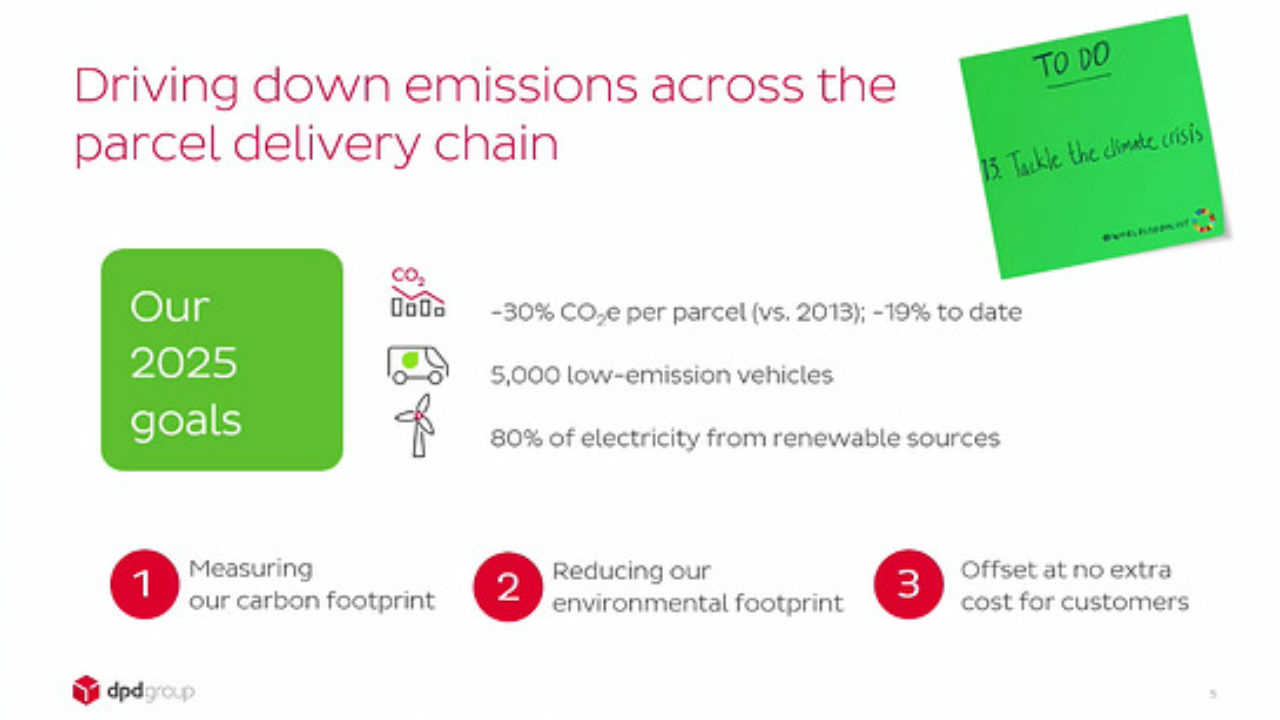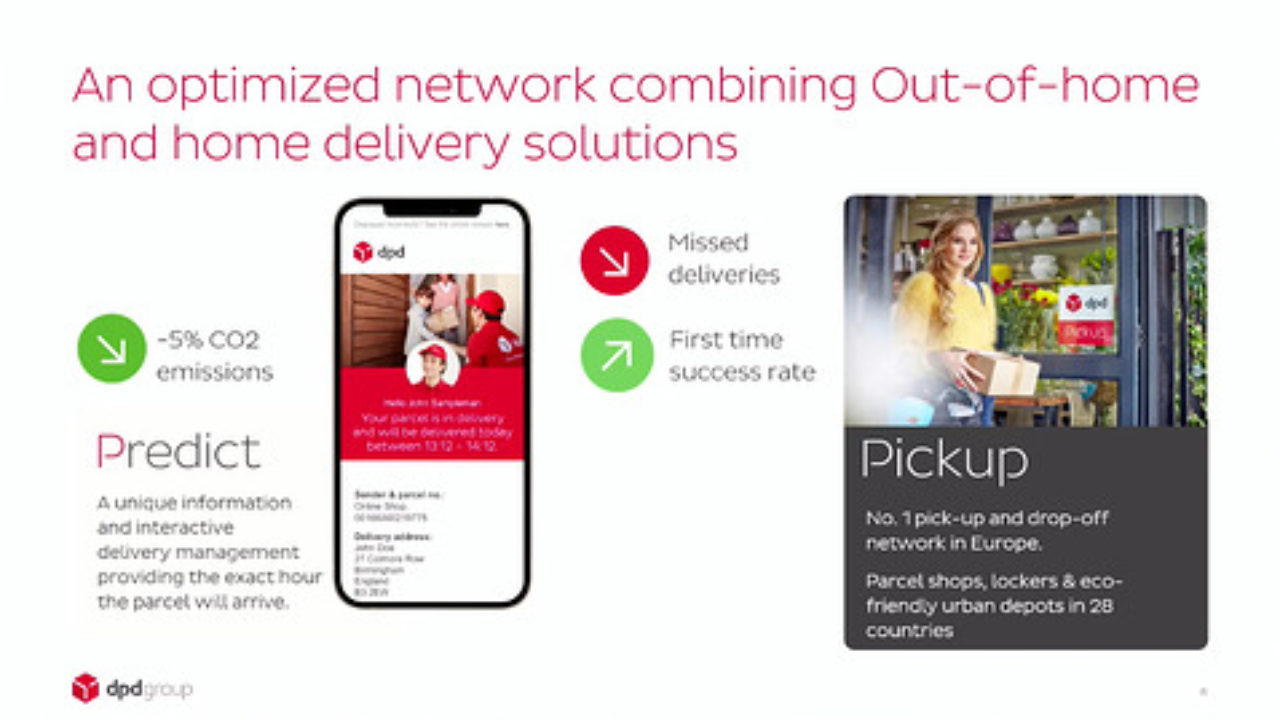How DPDgroup is driving a sustainable CEP business
As leaders around the world seek to address issues raised by climate change, the CEP industry is aware that the transport sector is viewed as one of the major contributors to CO2 emissions.

By BEUMER Group
CEP companies recognise that as they are part of the climate change problem, they must be part of the solution. They’re becoming increasingly proactive therefore in demonstrating that they’re moving in the right direction when it comes to sustainable business practices.
We talked with DPDgroup’s Dominique Mamcarz, Sustainability Director, about the sustainable initiatives DPDgroup is taking today.
DPDgroup, an international delivery network of French Le Groupe La Poste, has moved to make sustainability core to its business.
With its mail and parcel services arm contributing to more than a third of Group La Poste’s overall revenue, DPDgroup knows sustainable delivery cannot be side-streamed, says Mamcarz. And this is reflected in its Vision 2030 statement, in which DPDgroup aims to become the international reference in sustainable delivery and a leading enabler of e-commerce acceleration.
According to Mamcarz, DPDgroup has been talking to its customers, suppliers, governments, city authorities, universities and research institutes, and the message is clear: customers expect big brands and companies to be active on environmental sustainability. This message is reinforced by DPDgroup’s annual survey of e-shoppers, Mamcarz says, where it was found that in the UK, for example:
“43% of e-shoppers are likely to switch to a different e-tailer offering wider sustainability delivery options.”
At the same time, Mamcarz continues, regulation – such as the EU’s Green Deal – is moving fast and CEP companies, such as DPDgroup, know they have to act.
To meet expectations for sustainable practices DPDgroup is midway through implementing some bold goals for 2025. Mamcarz says:
“We are working on driving down emissions across our parcel delivery chain by measuring and reducing our carbon footprint. And since 2012, we’ve been offsetting any remaining emissions at no extra cost to our customers.”
DPDgroup’s ambitious plans include:

DPDgroup has also set ambitions to improve quality of life in urban areas. As Mamcarz explains, it has decided to focus first on cities as this is where its delivery business has the most impact. As part of its goals, it plans to deploy an exclusively low-emission fleet in 225 cities worldwide.
However, Mamcarz says, DPDgroup is of the view that it needs to go further than implementing an alternative fleet. Urban schemes, such as 80 new urban depots, complemented with out-of-home delivery and home delivery, are very impactful. Constant interaction with consignees is key to these services. He explains:
“DPDgroup has found that giving customers control over delivery options enables a more successful first-time delivery and that alone reduces emissions by five percent per parcel.”
Another core element of DPDgroup’s urban delivery scheme, Mamcarz continues, is educating its end customers to use alternative delivery options as they can be part of the solution. DPDgroup aims to educate its customers of the importance of picking up their parcels in ways that are responsible and have the least environmental impact.
Mamcarz says:
“DPDgroup needs to work alongside retailers, as sustainable delivery options need to be visible to the customer on the retail side to achieve the biggest impact on customer behaviour.”

Fundamental to all of DPDgroup’s sustainability efforts is its use of data. It is only with the use of data and data-driven technologies, says Mamcarz, that DPDgroup can demonstrate to its customers how green its practices are, accurately report its CO2 emissions, down to the parcel level, and measure its carbon footprint in order to improve.
The daily use of data, Marcarz continues:
“… is going to be fundamental to standardising sustainability measurements across the sector and will be what customers will demand in order to compare transport companies to make their green choices. Data is the current battle for all CEP companies, including in the drive to be more sustainable.”
Like many CEP companies, DPDgroup firmly believes that meeting sustainable expectations will best be realised by collaborating with all stakeholders, including:
Through new innovations, testing and learning on the last mile, Mamcarz believes DPDgroup is well on its way to meeting its sustainability goals. He comments:
“With alternative fleets, optimising daily processes, having a city presence, making out-of-home delivery easy and convenient, DPDgroup’s low emission delivery throughout Europe will positively impact 80 million inhabitants (or 20 percent of the population).”
It is these types of solutions, alongside customer education and collective stakeholder efforts, that will bring about a greener delivery.